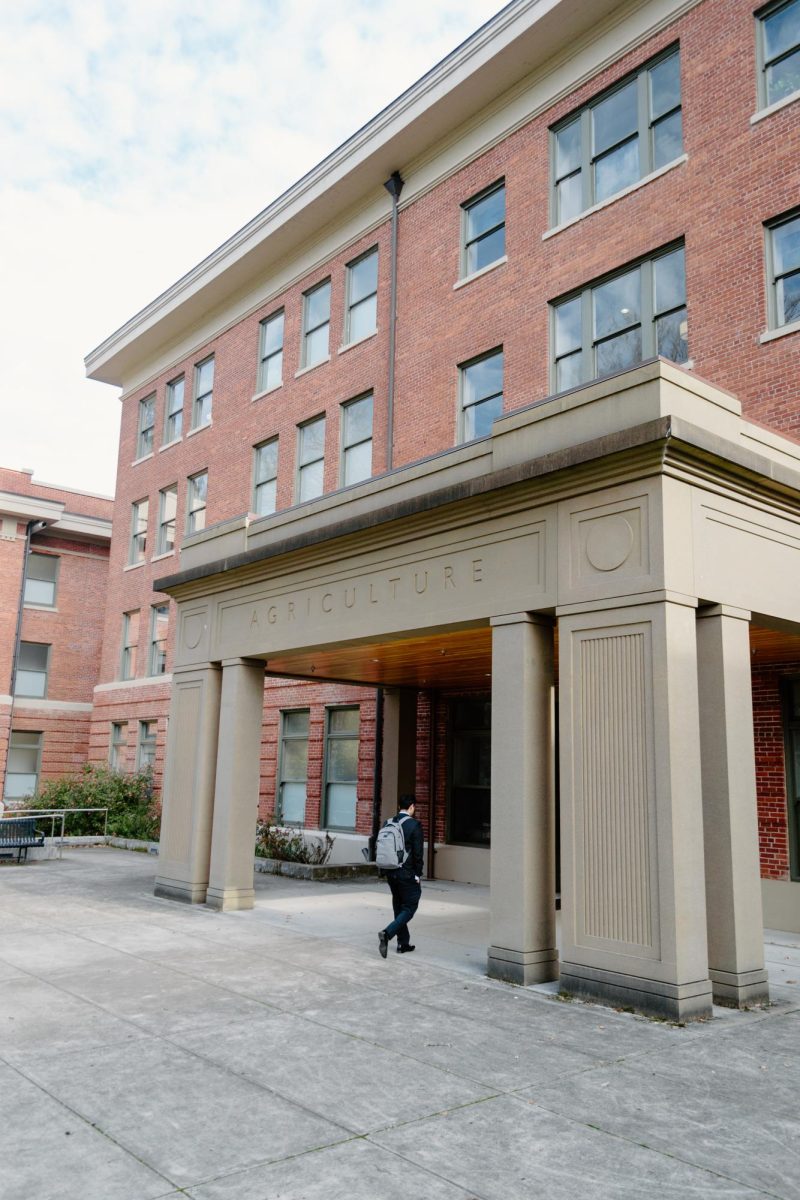Editor’s Note: This is a column and does not reflect the views or opinions of the Daily Barometer
With the message “This machine kills fascists” stuck to the front of his guitar, your first idea of Woody Guthrie likely isn’t a folk singer with a fisherman’s cap cocked to one side.
“He spoke like someone who seemed like he was kind of almost a hick,” said Robert Santelli, Oregon State University’s director of popular music and performing arts, author of three books on Woody Guthrie and creator of the Woody Guthrie Center in Tulsa, Oklahoma.
It’s not necessarily the image of someone now hailed as, according to Santelli, the patron saint of social and political protest music in America. But from the late 1930s to early 1940s, Guthrie wrote thousands of songs with themes ranging the gamut of racism, poverty, political and social injustice, fascism and plain bad luck.
And as he set down his fascist-killing guitar, artists like Johnny Cash, Bob Dylan and Rage Against the Machine picked it up, emulating his gruff lyricism and using it as an agent of change.
“No one really comes close to the genius and the commitment that Woody had to American music, and its chance to change America,” Santelli said.
And if you’re into that gravelly, weathered sound of someone who has seen some hardships in life, you might give him a listen.
But in the wake of his career, Guthrie also left behind a few personal journals. Smack-dab in the middle of one, dated to New Year’s Day 1943, he left his New Year’s Resolutions.
Or, as he called them, his “New Year’s Rulins.”
Simple rulins’ that include “shave,” “take bath,” and “wash teeth if any.” Mixed with others like: “Keep hoping machine running,” and “dream good.”
It’s a simple, if not odd, collection of resolutions tailored to a nomadic folk singer in the 1940s. They shouldn’t apply to the life of a college student of the 21st century, but somehow, they kind of do.
Number 12 on Guthrie’s list is to “change bed clothes often.” Something that seems like an insurmountable task, dance better. Bank all extra money. Love everybody. It’s tough to argue with those.
Even the loftier ones, like “wake up and fight,” can find a place in student life. There’s no shortage of social and political movements happening right now – just as there were when Guthrie was alive.
According to Santelli, Guthrie wrote over 3,000 songs, many of them during this period and many of them about the issues of the day, literally.
“(Guthrie) read the New York Times in the morning,” Santelli said. “And then if there was an article that really moved him or he was interested in, (he’d) cut it out. And then in the afternoon, he’d write a song about it.”
Guthrie was a powerhouse in many regards, and his “Rulins” reflect that. As simple as they may be, they serve as a good reminder that change doesn’t have to be that complex.
As 2024 rolls around, consider taking a page from Guthrie. Even if it is just to “change socks.”


















































































![Newspaper clipping from February 25, 1970 in the Daily Barometer showing an article written by Bob Allen, past Barometer Editor. This article was written to spotlight both the student body’s lack of participation with student government at the time in conjunction with their class representatives response. [It’s important to note ASOSU was not structured identically to today’s standards, likely having a president on behalf of each class work together as one entity as opposed to one president representing all classes.]](https://dailybaro.orangemedianetwork.com/wp-content/uploads/2025/03/Screenshot-2025-03-12-1.00.42-PM-e1741811160853.png)

























